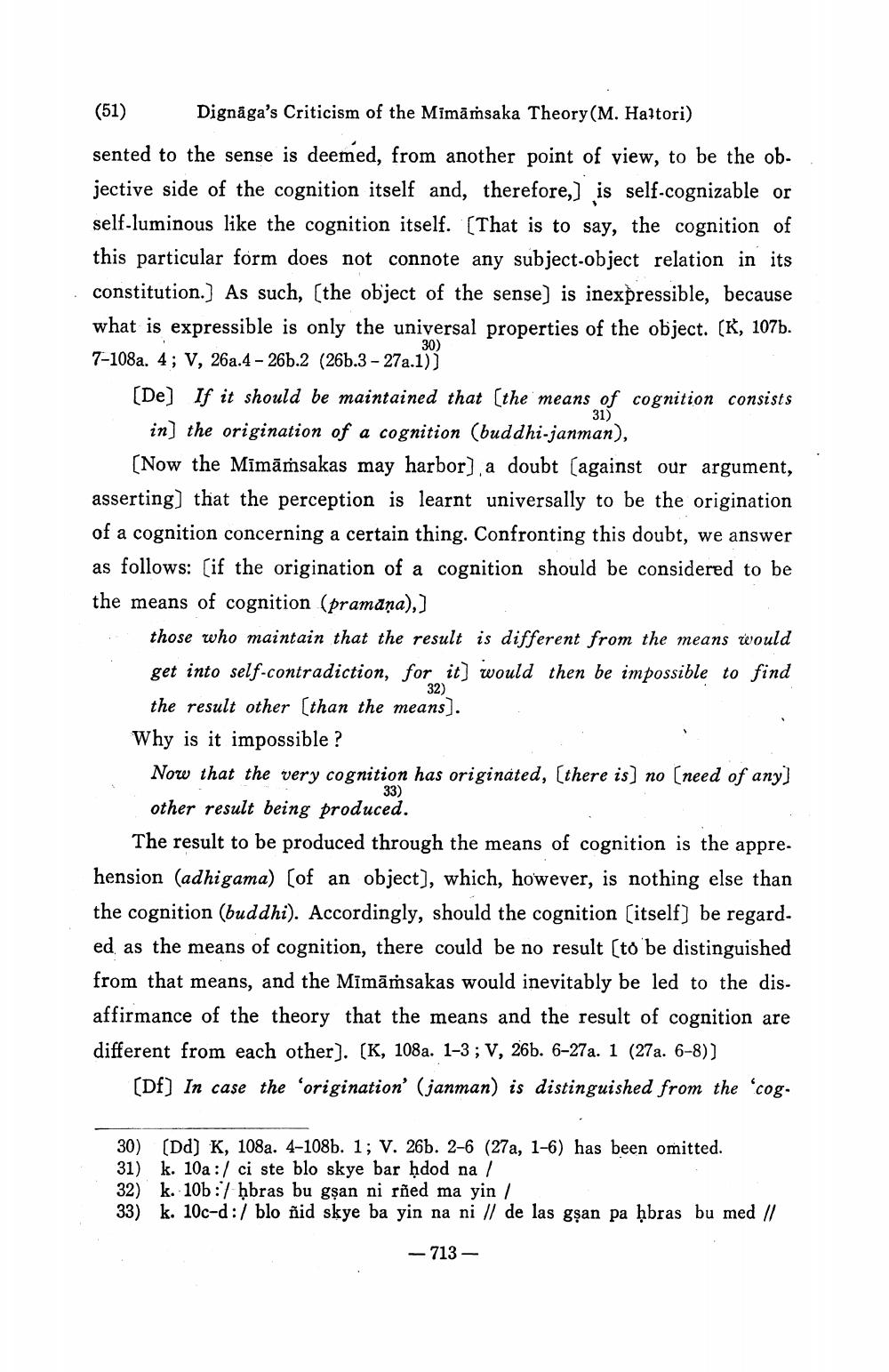________________
30)
31)
(51) Dignāga's Criticism of the Mimāṁsaka Theory(M. Hartori) sented to the sense is deemed, from another point of view, to be the ob. jective side of the cognition itself and, therefore,] is self-cognizable or self-luminous like the cognition itself. (That is to say, the cognition of this particular form does not connote any subject-object relation in its constitution.) As such, (the object of the sense) is inexpressible, because what is expressible is only the universal properties of the object. (K, 107b. 7-108a. 4; V, 26a.4 - 26b.2 (26b.3 - 27a.1))
(De) If it should be maintained that the means of cognition consists
in) the origination of a cognition (buddhi-janman),
(Now the Mimāṁsakas may harbor), a doubt (against our argument, asserting) that the perception is learnt universally to be the origination of a cognition concerning a certain thing. Confronting this doubt, we answer as follows: (if the origination of a cognition should be considered to be the means of cognition (pramaņa),]
those who maintain that the result is different from the means would get into self-contradiction, for it) would then be impossible to find
the result other (than the means). Why is it impossible ?
Now that the very cognition has originated, (there is) no (need of any)
other result being produced.
The result to be produced through the means of cognition is the appre. hension (adhigama) (of an object), which, however, is nothing else than the cognition (buddhi). Accordingly, should the cognition (itself) be regard. ed as the means of cognition, there could be no result (to be distinguished from that means, and the Mīmāṁsakas would inevitably be led to the disaffirmance of the theory that the means and the result of cognition are different from each other). (K, 108a. 1-3 ; V, 26b. 6–27a. 1 (27a. 6-8)]
(Df) In case the origination' (janman) is distinguished from the cog.
32)
33)
30) (Dd) K, 108a. 4-108b. 1; V. 26b. 2-6 (27a, 1-6) has been omitted. 31) k. 10a :/ ci ste blo skye bar ḥdod na / 32) k. 10b :/ hbras bu gşan ni rñed ma yin/ 33) k. 10c-d :/ blo ñid skye ba yin na ni // de las gşan pa hbras bu med //
- 713




